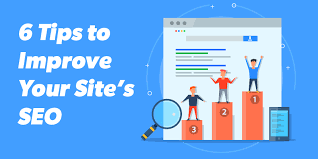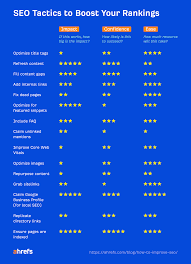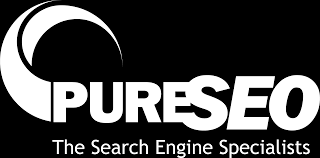5 Tips to Enhance Your Website’s SEO
Search Engine Optimization (SEO) plays a crucial role in driving organic traffic to your website. By implementing effective SEO strategies, you can improve your site’s visibility and attract more visitors. Here are five tips to help you enhance your website’s SEO:
- Keyword Research: Conduct thorough keyword research to identify relevant keywords and phrases that your target audience is searching for. Use these keywords strategically in your website content, meta tags, and URLs to improve your site’s search engine rankings.
- Optimize On-Page Elements: Optimize on-page elements such as title tags, meta descriptions, headings, and image alt text with relevant keywords. Ensure that your content is well-structured and easy for search engines to crawl and index.
- Create High-Quality Content: Develop high-quality, engaging content that provides value to your audience. Regularly update your website with fresh content that is informative, relevant, and optimized for search engines.
- Improve Site Speed: A fast-loading website not only enhances user experience but also contributes to better SEO performance. Optimize images, minify CSS and JavaScript files, and leverage browser caching to improve site speed.
- Build Quality Backlinks: Earn backlinks from reputable websites in your industry to boost your site’s authority and credibility. Focus on acquiring quality backlinks from relevant sources through guest blogging, influencer collaborations, and outreach campaigns.
By implementing these five tips effectively, you can enhance your website’s SEO performance and increase its visibility in search engine results. Remember that SEO is an ongoing process that requires continuous monitoring and optimization to stay ahead of the competition.
If you need assistance with improving your site’s SEO or have any questions about optimizing your website for search engines, feel free to reach out to our team of experts at NasNad.com!
7 Essential Tips to Boost Your Website’s SEO Performance
- Create high-quality, relevant content for your website.
- Optimize your website’s meta tags, including title tags and meta descriptions.
- Use descriptive URLs that include keywords related to your content.
- Improve website speed and performance for better user experience.
- Build quality backlinks from reputable websites in your industry.
- Optimize images on your site with descriptive filenames and alt text.
- Regularly monitor and analyze your SEO performance using tools like Google Analytics.
Create high-quality, relevant content for your website.
Creating high-quality, relevant content for your website is essential for improving your site’s SEO performance. By developing content that is informative, engaging, and tailored to meet the needs of your target audience, you not only attract more visitors but also increase the likelihood of ranking higher in search engine results. Regularly updating your website with fresh and valuable content not only establishes your authority in your industry but also enhances user experience, ultimately leading to better SEO outcomes.
Optimize your website’s meta tags, including title tags and meta descriptions.
Optimizing your website’s meta tags, such as title tags and meta descriptions, is a crucial aspect of improving your site’s SEO. Title tags provide search engines with a brief overview of the content on each page, while meta descriptions offer a concise summary that entices users to click through to your site. By incorporating relevant keywords and compelling messaging in your meta tags, you can enhance your site’s visibility in search engine results and attract more organic traffic. Ensuring that your meta tags are well-crafted and aligned with your content can significantly impact your site’s search engine rankings and overall SEO performance.
Use descriptive URLs that include keywords related to your content.
Using descriptive URLs that incorporate keywords relevant to your content is a crucial strategy to enhance your site’s SEO. When search engines crawl your website, they analyze the URL structure to understand the context of your pages. By including targeted keywords in your URLs, you not only make it easier for search engines to index your content but also improve the chances of your pages ranking higher in search results. Descriptive URLs not only benefit SEO but also provide users with a clear idea of what to expect when they click on a link, ultimately improving user experience and driving more organic traffic to your site.
Improve website speed and performance for better user experience.
Improving website speed and performance is essential for enhancing user experience and boosting SEO. A fast-loading website not only keeps visitors engaged but also reduces bounce rates and increases the likelihood of conversions. By optimizing images, minimizing CSS and JavaScript files, and leveraging browser caching, you can create a seamless browsing experience that encourages users to explore your site further. Prioritizing website speed not only benefits your audience but also signals to search engines that your site is reliable and user-friendly, ultimately leading to improved search engine rankings and increased organic traffic.
Build quality backlinks from reputable websites in your industry.
Building quality backlinks from reputable websites in your industry is a crucial strategy to enhance your site’s SEO performance. These backlinks not only increase your website’s authority and credibility in the eyes of search engines but also drive relevant traffic to your site. By collaborating with respected sources in your industry and earning backlinks from them, you can improve your site’s visibility in search engine results and establish a strong online presence. Focus on acquiring backlinks from trustworthy websites that are relevant to your niche to boost your SEO efforts effectively.
Optimize images on your site with descriptive filenames and alt text.
Optimizing images on your website with descriptive filenames and alt text is a crucial aspect of improving your site’s SEO. By using relevant keywords in image filenames and providing informative alt text, you not only enhance the accessibility of your site for visually impaired users but also help search engines understand the content of your images. This practice can significantly boost your site’s visibility in image search results and improve overall SEO performance.
Regularly monitor and analyze your SEO performance using tools like Google Analytics.
Regularly monitoring and analyzing your SEO performance using tools like Google Analytics is essential for understanding how your website is performing in search engine results. By tracking key metrics such as organic traffic, keyword rankings, and user behavior, you can identify areas for improvement and make informed decisions to optimize your site for better visibility. Google Analytics provides valuable insights that help you measure the effectiveness of your SEO strategies and adjust them accordingly to achieve your goals. Consistent monitoring ensures that you stay informed about your site’s performance and make data-driven decisions to enhance your SEO efforts over time.




